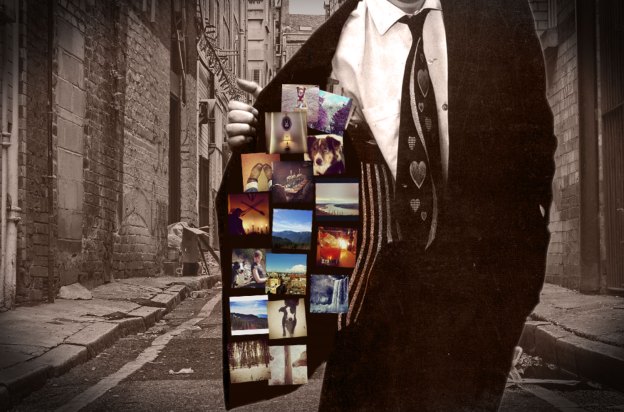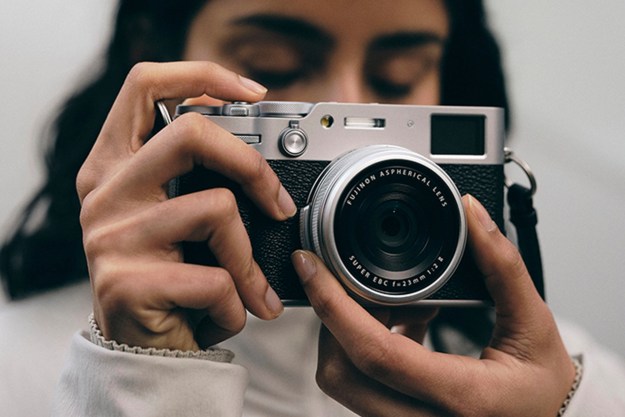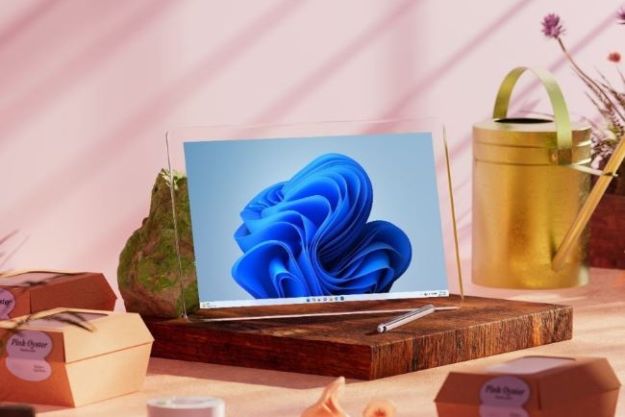 Facebook’s vague Terms and Conditions are wrought with privacy loopholes. And these issues are probably the easiest to distinguish and the most apparent talking about photo apps. Remember the Instagram ToS debacle from mid-December 2012? The main point that drew rampant criticism and user outrage was the idea that Instagram could profit off your photos. As it turns out, there are a handful of apps out there that are profiting off of your Instagrams, or any photos you’re uploading to Facebook.
Facebook’s vague Terms and Conditions are wrought with privacy loopholes. And these issues are probably the easiest to distinguish and the most apparent talking about photo apps. Remember the Instagram ToS debacle from mid-December 2012? The main point that drew rampant criticism and user outrage was the idea that Instagram could profit off your photos. As it turns out, there are a handful of apps out there that are profiting off of your Instagrams, or any photos you’re uploading to Facebook.
During the Instagram uproar, Facebook was adamant that it wasn’t out to profit from your photos unsuspectingly. But this doesn’t mean that the social network isn’t allowing third-party apps that want to profit off this content, and including them in its App Center no less.
The most recently-launched among them is PhotosAtMyDoor, which comes from the developers at MorePhotos. The app is like a Cafe Press for Facebook photos, except that you aren’t only selecting your own images, but any of your friends’. To top it off, you don’t need to let your friends know that you have taken their content for this purpose – and the process is further complicated if that image was taken by a professional, or if it’s trademarked. But the app does not care; you uploaded it to Facebook and shared it? It’s fair game!
MorePhotos isn’t the first and only company to allow Facebook users to create products out of friend’s photos. Snapfish, also allows users to “make prints of your photos and friends’ photos that are shared on social network sites like Facebook.” FotoFriend is yet another service that makes it easier than easy to troll through which of friends’ photos to make a print.
In fact, PhotosAtMyDoor is one of the clunkier experiences compared to some of these other apps – MorePhotos says the app is just a “side project of a side project,” to be fair.

CanvasPop has experienced huge success off its printing business, much thanks to the rise of Instagram. However, at least the site acknowledges that this puts professional photographers using social media in a tough position and clarifies that unless someone is tagged in a copyrighted image, the photographer has the right to make sure it doesn’t ended up printed and on someone’s wall, with CanvasPop pocketing the profit.
While we know how these apps are getting away with taking and printing unsuspecting Facebook users photos, how do they defend themselves? MorePhotos exec Zach Wessels says PhotosAtMyDoor was built for the consumers who might not know how to download and print photos – the less tech-friendly among us, like your grandparents. Not sure about everyone, but if most of us here told our grandma that to print a Facebook photo on a mug, all she had to do was install a Facebook plugin … that might be the end of the conversation right there. And you can’t dismiss the fact that you have no idea who’s printing your pictures without your knowledge, which could easily include copyrighted photos that slip past an app’s guard.
And unfortunately, there’s nothing you can do about it. A quick refresh of Facebook’s policy on this, for posterity’s sake:
“For content that is covered by intellectual property rights, like photos and videos (IP content), you specifically give us the following permission, subject to your privacy and application settings: you grant us a non-exclusive, transferable, sub-licensable, royalty-free, worldwide license to use any IP content that you post on or in connection with Facebook (IP License). This IP License ends when you delete your IP content or your account unless your content has been shared with others, and they have not deleted it.”
You see that part? The bolded text? That’s what gives these companies the ability for its users to take any public photos and sell a product with it. There’s nothing illegal about what they are doing.
These apps are unabashedly setting up a system of taking content that isn’t theirs and being paid to do something with it.

Photographers sharing their photos on Facebook are obviously put at the most disadvantage here. The social network is a near necessity for gaining traction and getting some eyeballs on your work, but you run the risk of this app and any future services like it pulling that content and making a dime off it – with no kickback to you. Then again, any photo you upload onto Facebook even if the image is copyrighted, is granting Facebook a license to do with your photo as it wishes (technically). Of course, anyone with any Internet knowledge could also download your photos, and upload them to Cafe Press or any other printing service – but these Facebook photo-pulling-and-printing apps are undeniably streamlining the process, unabashedly setting up a system of taking content that isn’t yours and being paid to do something with it.
On the flip side, there are outlets like InstaCanvas, which give “Instagram artists” a place to make a buck off their images. But is it worth it for professional photographers to take the chance with Facebook, or any social network for that matter? It may mean sharing photos on social outlets is the last thing they should do.
And what about the rest of us? Just because we don’t plan on making a buck off that iPhone picture we uploaded doesn’t mean we think it’s okay for someone else to. Plus, the idea that someone you’re “friends” with on Facebook (which we all know, means a lot less than it used to) could have a $50 canvas of that selfie you took at home is straight up creepy. For the record, PhotosAtMyDoor doesn’t give friends-of-friends or the general public access to photos – you have to be directly connected to someone, but again, for many of us that’s still leaving the door too wide open.
So who’s to blame? You, probably. According to the Terms and Conditions for most of these apps, if you take your friend’s copyrighted photo to make a new mug for yourself and he or she end up objected, that’s on you. It’s a lot like torrenting: If you don’t get caught, fine, and all those times you torrent legal content, all is well. But you do it with something that another party has the rights to, and that isn’t going to fall on the torrenting client, that’s all on you. Here’s how PhotosAtMyDoor puts it: “You agree that your use of the Application will not (i) violate any term or condition of this Agreement; (ii) violate the rights of third parties, including but not limited to intellectual property rights, rights of privacy, or rights of publicity; or (iii) violate any law, statute, ordinance, regulation, or treaty.”
And FotoFriend has a similar policy: “All Content that is Processed through Fotofriend is the sole responsibility of the person who submitted it. Thus, you are responsible for your Content. You may only upload Content where you have the consent of all persons pictured, including through your relationship with those persons.”
Brian Ach, a freelance photographer, puts the user’s risk for stealing and using copyrighted photos into perspective. “This (‘stealing’ copyrighted photos) happens all the time, but so do lawsuits. All you have to do is take a look at Daniel Morel’s lawsuit concerning AFP and the Washington Post for using a shot of his from Twitter concerning the Haiti earthquake. So while the expectation is that your copyrighted photos may be stolen, in retrospect people using photos without permission can also be expected to be sued, which will end up being way more costly than just asking permission and paying for usage in the first place.”

At the root of it all really is Facebook, as cliché as that may be at this point. A big to-do was made about the fact the Instagram wouldn’t sell your photos, but apparently it’s fine for lesser-known services to do this because they want cull the same type of user rage that something as hyped as Instagram will. But it’s all just another less in digital ownership – which is the say that it doesn’t exist. The moment you upload something – without prior tinkering into your privacy settings, of course – you’re giving a certain social media circle access to it. And if what they want to do with it is pay $6 for a picture of your dog printed on a refrigerator magnet … well then, so be it.
Facebook declined to comment for this article.


